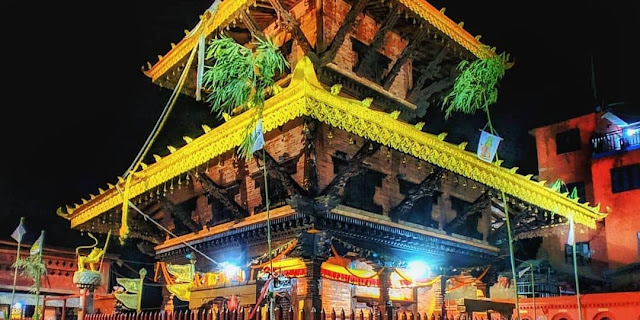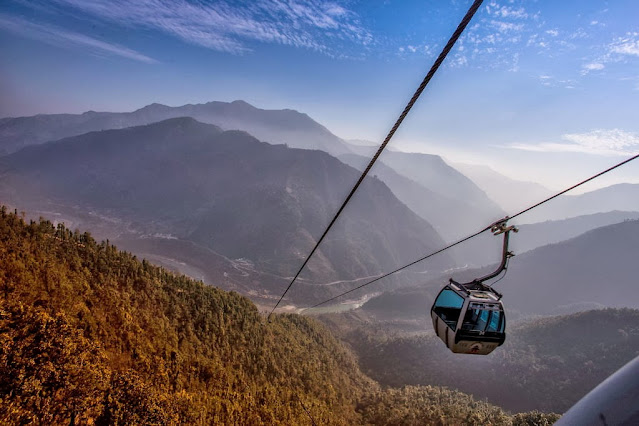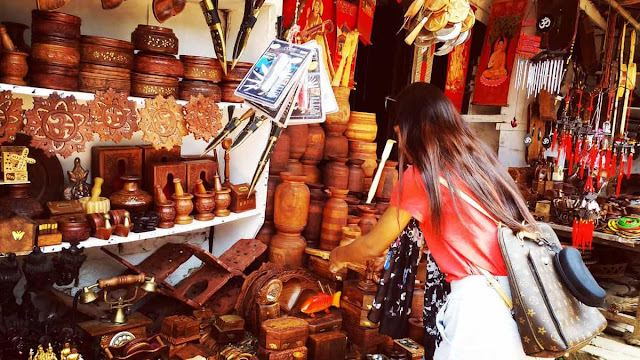Manakamana Temple | Best Ropeway To Visit In Nepal
The Manakamana Temple (Nepali: मनकामना मन्दिर) situated in the Gorkha district of Nepal is the sacred place of the Hindu Goddess Bhagwati, an incarnation of Parvati. The name Manakamana originates from two words, “mana” meaning heart, and “kamana” meaning wish.
Venerated since the 17th century, it is believed that Goddess Manakamana grants the wishes of all those who make the pilgrimage to her shrine to worship her.
History of Manakamana
It is said the sovereign of Ram Shah was a goddess. It is simply known to her devotee. In any event, the lord was unconscious of it. Ram Shah is above all else Gorkha brought into the world in AD 1614. One day the lord discovered his queen in goddess manifestation. He advised this Lakhan Thapa. Lord bites the dust in a flash, in AD 1636. The queen went Sati (submit incineration with the spouse’s fire according to the custom of that time).
Lakhan Thapa protested and daunted her Sati. The queen persuaded him that she would return once more. A half year after the sovereign’s demise, Lakhan Thapa heard the news that a rancher hit a stone while he furrows his field and a flood of blood and milk came out from the stone. Promptly, he began performing Hindu tantric customs and love (home and pooja) on the spot.
As soon as the progression of blood and milk stopped, he set up it as Manakamana Mai. It later on developed as Manakamana Temple. The current cleric at the sanctuary is the seventeenth-era relative of Lakhan Thapa. Manakamana is just one of not many of its sort of sanctuaries where the cleric is from the Magar people group of Nepal.
Temple Architecture
The Manakamana temple is set in a square and looks over a monstrous sacred magnolia tree. The temple is four-storied with layered pagoda-style rooftops and lies on a square platform. In 1996, metal plates were introduced on the roof. The passageway to the temple is the south-west way and is set apart by one stone, which is a sacrificial pillar.
Manakamana Temple Darshan
Manakamana temple darshan is the most famous action among travelers. The five fundamental universe components earth, fire, water, air, and ether are incorporated during the Puja at Manakamana sanctuary. Some love materials like Abir, Kesar, Badam, blossom and leaves, Dhup, Diyo, Bastra, Fruits, Bell, betel nuts, janai, Anna, Saubhagya, and so forth are remembered for the love cycle.
The giving up culture is famous at Manakamana sanctuary. The penance of goats and pigeons in a structure alongside the sanctuary is made to fulfill the goddess. Notwithstanding, as of late poultry penance of pigeons, chickens, and so on is restricted at Manakamana.
Visit Manakamana Temple is the earlier wish of numerous pilgrims. Numerous individuals visit the Manakamana temple during the celebration season of Dashain and Nagpanchami/Janai Purnima.

Major Attractions
1)World’s largest Thanka to be displayed
The world’s biggest ‘Thanka‘ painting is to be put on a show in Nepal on October 5 and 6. Data about this was given at a public interview coordinated by the Nepal Buddhism Preservation Committee.
The work of art was a collective making of 10,000 volunteers from 16 nations on the planet. Prior, the canvas portraying 12 significant happenings identified with the way of life of the Lord Gautam Buddha was shown in the USA, Japan, Mongolia, and India.
The work of art gauging 100 kgs depended on the idea of Dr. Surya Thakali and after the presentation; it will be shown in Thailand one year from now.
2)Cable Car Ride

For individuals who haven’t experienced the cable car ride, at that point this is the best spot to have. It is the main rope method of Nepal which is 2,772.2 m long and the top station is situated at 1,302 m stature. This cablecar framework was imported from Austria on November 24, 1998.
One can encounter a maximum speed of 21.6 km/h and a hypnotizing perspective on surrounding slopes and towns can be seen from the car.
Manakamana estimated cable car ticket price is as mentioned below :
- Normal Rs 640
- Child (Nepali/Indian) Rs 385
- Student Rs 480
- Elderly RS 450
- Disable Rs 320
For More Detailed Information visit: Manakamanadarshan.com Website
3)Cinematic scene of surrounding hillsides

Hills covered with Orange gardens can be seen. On a clear sunny day, a breathtaking view of Mt. Manaslu – Himachali and Manaslu ranges can be seen. The Mankamana temple overlooks terraced fields, and the Trisuli and Marshyang-di river valleys. The hilltop (1302m) also offers a vantage point for taking in the breathtaking view of the Manaslu, Himalchuli, and Annapurna massifs to the north.
4)Worship and sacrifices
Manakamana is a Hindu Goddess so she is loved with contributions of flowers, sound, smell, dress, make-up, and colors. There is a custom of sacrificing animals at the temple. Lovers remain in line in any event, for 5-10 hours during celebrations.
The line began from the temple entryway to arrive at longer than a few kilometers once in a while. Individuals can be seen remaining in accordance with pooja samagri (love materials) close by and some of them carrying duck, chicken, or goat with them. Individuals appear to appreciate remaining in the line without food, some even with no water.
5)Hike from Anboo khairani which takes around 3 hrs.
This option is genuinely for nature lovers and climbers who need to study more and find out about the neighborhood individuals, culture, and jobs around Manakamana. Starts by intercrossing the old waterway extension and climbing little slopes can appreciate a breathtaking scene of blending Daraudi and Marshyandi streams.
Nature arrives at vegetation in transit with Orange Garden. You can appreciate the new orange additionally during your Hike. Visit HikeONTrek for detailed information.
6)Holy Place
For Hindus, it is a holy place to worship the goddess Bhagwati. Whereas others can enjoy the structure and surroundings of the Manakamana Temple.
7)Manakamana Street Market

At the Manakamana hilltop, there is a small market as well. You can buy the signs of the temple, Khukuris, worship ingredients, and many more locally made products.
Frequently asked questions :
1)How to reach Manakamana?
You can hire a car or travel by tourist bus from Kathmandu to Kurintar which is about 104 kilometers which will take about 4 hours. From there you can travel by cable car which takes about 10 minutes or you can go on hiking.
2)How is the air quality in Manakamana Temple?
Health effects can be immediately felt by sensitive groups. Healthy individuals may experience difficulty breathing and throat irritation with prolonged exposure. Limit outdoor activity.
3)Where to stay?
There are motels, hotels, and lodges around Manakamana Temple. A single room cost from Rs. 100 to Rs 600 depending upon facilities one wants to avail of. On cold days, most of the hotels are closed but open sufficient enough to hold the guests in the winter. Visit Expedia to prebook for hotels.
4)What is the estimated expenses to visit Manakamana?
- Travel to Manakamana Cable Car Station, From Kathmandu NPR 300 on a local bus [Fare is different depending upon the place from where you are ].
- Two Way Cable Car Fare – Around NPR 640 for Nepalese [Different rate for foreigners].
- Lunch – NPR 250.
- Souvenirs/Gifts – NPR 100 – Thousands [It’s up to you].
- Stay in Hotel – Around NPR 500 for a normal room.
5)What is the cable car operating time?
Everyday 9 am to 12 Noon / 1.30pm to 5 pm, there will be a short lunch break in between 12.00pm to 1.30pm.
6)What to remember?
- You cannot visit the rear side of the temple as there are offerings for the gods
- There could be additional waiting time possible for devotees to offer their prayers on all Saturdays as well as the month of July to October
- The cable car services remain suspended from 12.00 pm – 1.30 pm
Also read :
👉Best Historical Place To Visit In Nepal
👉How To Travel CG Temple Nepal – Travel Guide
👉Tansen Palpa Shreenagar Best Hill Station And Hiking Place In Nepal

